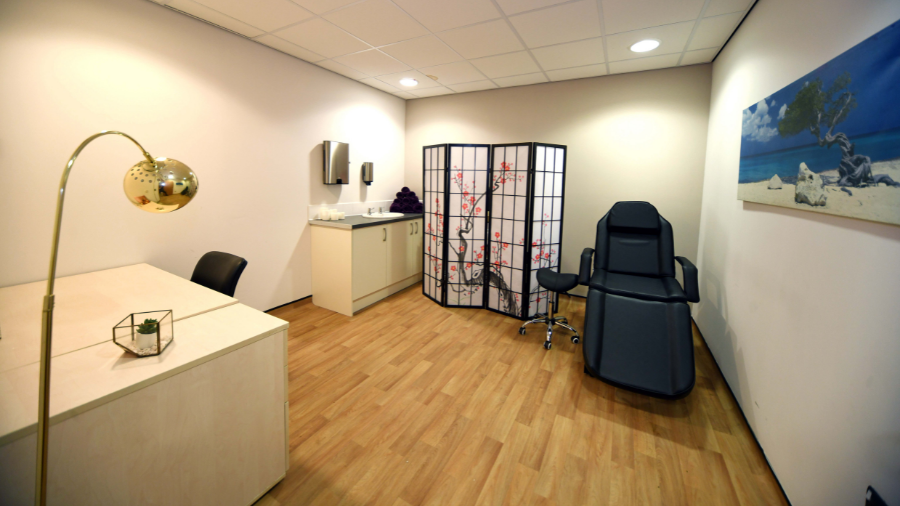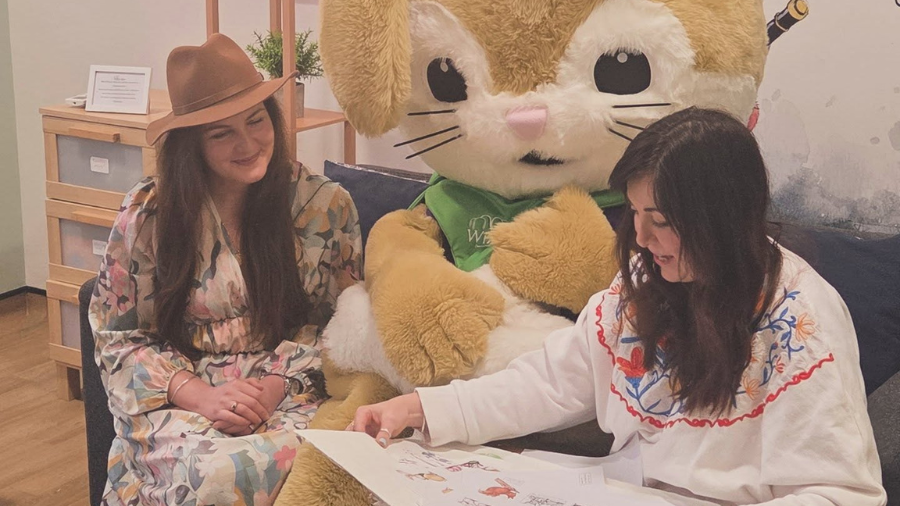At Willow Burn Hospice we have a dedicated Complementary Therapy Service to deliver therapies to patients and their carers to enhance and develop the treatment experience for patients. In this article, Chloe Kimber explores complementary therapies and how they help patients and their carers following a diagnosis of a life-limiting illness.
Complementary therapies aim to relax a patient living with a life-limiting illness – which are used alongside traditional forms of therapy and support. Complementary therapies offered at Willow Burn include reiki and reflexology. Alternative therapies are - as the name suggests - therapies that are alternatively used instead of conventional therapies like counselling. These can include art therapy and cookery social classes. Types of alternative and complementary therapies can be used interchangeably to tailor to a patient’s needs; however they are currently categorised into which types are generally offered at hospices, and which can be performed at home.
Whilst many believe grief only begins after death, for the individual being diagnosed with a life-limiting illness, grief sparks instantly. The person’s life has been flipped; they have lost a sense of their identity. A new ‘illness identity’ forms – in which the individual cannot disassociate themselves from their sickness. The consumption that the illness has on a patient’s mind has astounding effects, and they often cannot cope with watching others go about their daily lives. There are then the knock-on impacts that these thoughts have on a patient, such as withdrawing from the community and disengaging from social activities. To inhibit this, counselling is offered, however some patients feel like they also need some relaxation to counteract stressors like hospital visits. For this, alternative therapies are introduced. Complementary Therapies
Complementary Therapies
Complementary Therapies are focused on providing temporary, physical and mental relief for the patient. Willow Burn’s own Complementary Therapist, Sue, is highly experienced and compassionate when working with vulnerable people.
Willow Burn offers several forms of complementary therapy to help relax the patient, and has recently launched a service for carers, in which therapy is also offered to the patient’s carer - as they need it just as much. Sue performs Reiki, Reflexology, Indian Head Massage, hand/foot massage and aromatherapy. These treatments are much more gentle than those provided in a spa.
Reiki specifically is energy balancing on the head, solar plexus, knees and feet. Most of the reiki is performed with no contact, but with permission, Sue can do hands-on balancing as well. She can also incorporate aromatherapy oils to enhance the treatment and ultimately relax the client. Reflexology is massaging the pressure points on the feet, which correlate to internal organs and muscles inside the body that need soothing. An Indian Head Massage is simply a deep scalp and neck massage which is profoundly effective for the client, and hand/foot massages are extremely gentle, however Sue needs to ensure that there are no contraindications to medication before deciding which treatment is best for a client.
What Are the Benefits?
Due to the essence of relaxation for the client, most long-term benefits are psychological and emotional. If a patient needed physical treatment to relieve symptoms of their life-limiting illness, complementary therapy would not be appropriate. Sue particularly focusses on how touch and conversation are the most rewarding aspects to her job, which in turn help a patient’s well-being. Most patients have limited social interaction, therefore the complementary therapy may be the only time they get to talk to someone outside of medical appointments. The nurturing qualities of touch also have outstanding impacts on the patient, as often, people don’t quite know how to ‘be’ with the patient.
 Alternative Therapies
Alternative Therapies
These therapies are used to improve mood, as well as providing opportunities to talk about grief and death. Due to the informal nature of them, alternative therapies are not open to just the patient, but can be used by the patient’s relatives to experience some relief to the stress of the illness. Some types of Alternative Therapies include Art Therapy (which doesn’t necessarily tackle grief itself, but attempts to reduce feelings of anxiety and distress), Walk and Talk Therapy - which provides an informal setting to start difficult conversations surrounding end-of-life care - and even more physical activities such as yoga can help detach the patient from their complex emotions to understand that grief is a natural process of healing. There are several other types of alternative therapies, therefore it may be best to research and decide what would fit you the most.
With thanks to Mid Durham AAP for funding the pilot of this service in 2021/2022
For further information about Complementary Therapies at Willow Burn Hospice, please call: 01207 529 224

